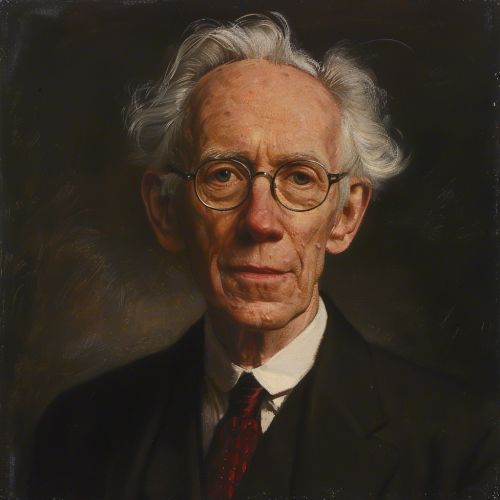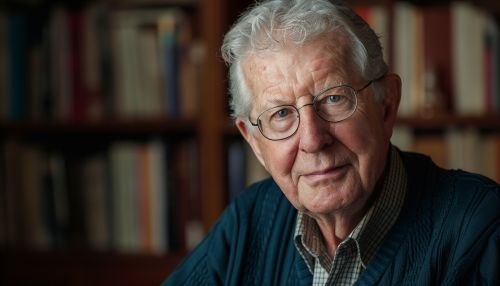John McTaggart
Early Life and Education
John McTaggart Ellis McTaggart, commonly known as John McTaggart, was born on September 3, 1866, in London, England. He was the son of Francis Ellis and Caroline Ellis. McTaggart's early education took place at Clifton College, a prestigious independent school in Bristol. He later attended Trinity College, Cambridge, where he excelled in his studies and was awarded a fellowship in 1891. McTaggart's academic prowess was evident early on, and he quickly became a prominent figure in the field of philosophy.
Academic Career
McTaggart's academic career was primarily associated with Trinity College, Cambridge, where he served as a lecturer and later as a fellow. His work was heavily influenced by the British Idealism movement, which was characterized by the belief that reality is fundamentally mental or spiritual in nature. McTaggart's philosophical contributions were significant, particularly in the areas of metaphysics and the philosophy of time.
Philosophical Contributions
Metaphysics
McTaggart is best known for his work in metaphysics, particularly his arguments concerning the nature of reality. He was a proponent of idealism, the view that reality is fundamentally mental. McTaggart's most famous work, "The Nature of Existence," is a two-volume treatise in which he explores the nature of reality and argues for the existence of a timeless, non-material world.
The Unreality of Time
One of McTaggart's most influential and controversial contributions to philosophy is his argument for the unreality of time. In his 1908 paper "The Unreality of Time," McTaggart distinguishes between two ways of understanding time: the A-series and the B-series. The A-series represents time as a series of events ordered by their relations to the present (past, present, future), while the B-series represents time as a series of events ordered by their relations to each other (earlier than, later than, simultaneous with).
McTaggart argues that the A-series is essential for our understanding of time, but that it is inherently contradictory and therefore cannot be real. He concludes that time itself is an illusion. This argument has had a profound impact on subsequent philosophical discussions of time and has generated extensive debate.
Influence and Legacy
McTaggart's work has had a lasting influence on the field of philosophy, particularly in the areas of metaphysics and the philosophy of time. His arguments have been the subject of extensive analysis and critique, and his ideas continue to be discussed and debated by contemporary philosophers.
Criticisms and Responses
McTaggart's arguments, particularly his claim that time is unreal, have been met with significant criticism. Some philosophers have argued that his distinction between the A-series and B-series is flawed, while others have challenged his conclusion that the A-series is inherently contradictory. Despite these criticisms, McTaggart's work remains a central point of reference in discussions of the nature of time.
Personal Life
McTaggart was known for his eccentric personality and his strong moral convictions. He was a committed vegetarian and an advocate for animal rights. McTaggart's personal beliefs were deeply intertwined with his philosophical views, and he saw his work as contributing to a broader understanding of the nature of reality and the moral implications of that understanding.
Selected Works
- "Studies in the Hegelian Dialectic" (1896)
- "Studies in Hegelian Cosmology" (1901)
- "Some Dogmas of Religion" (1906)
- "The Unreality of Time" (1908)
- "The Nature of Existence" (1921, 1927)
See Also


References
- Broad, C.D. "McTaggart, John McTaggart Ellis (1866–1925)." Oxford Dictionary of National Biography. Oxford University Press, 2004.
- Mander, W.J. "British Idealism: A History." Oxford University Press, 2011.
- Smart, J.J.C. "Problems of Space and Time." Macmillan, 1964.
